The second country that executed Drama Labs as part of the project was Poland. The event took place in the city of Gdynia in mid-July 2023, while preparations began in February by researchers from the University of Warsaw, a drama team from the local Gdynia Główna Theater and representatives from the Social Innovation Laboratory in Gdynia.
The context of the Polish Drama Labs was one of the most notorious conflicts in recent years in Gdynia, namely the conflict over the directions for the development of Polanka Redłowska – a green public space on the seashore and in the forest buffer zone. Diverse and often conflicting needs and intentions of local communities, activists, politicians and other interest groups, as well as their multiple priorities and perspectives, led to difficulties in dialogue and participatory decision-making.
Our activities were not part of a planning procedure, nor were part of a public consultation or participatory workshop in which a site program and design solutions are proposed. Rather, the events can be described as an interactive, paratheatrical role-play using elements of LARP (Live Action Role Playing), the Forum Theater and a simulation game. During its course, no direct reference was made to the current conflict and status of Polanka Redłowska, but a fictional reality was created – set in the history of the place from the 1990s, which was only the background of the plot and starting situation for the course of the game.
Residents, city activists, community leaders, NGO representatives and officials took part in the events. The fictionality of the game and its organization in the theater made it possible to engage these diverse, often conflicted groups in an active dialogue giving space to learn about different views, enter the skin of the other side of the conflict and discover new aspects of their community. The game also had an educational dimension – it promoted communication based on empathy and consideration of each person’s needs.
Polish Drama Labs was prepared and led by the main moderator (Game Master) and four actors experienced and trained in Non-Violent Communication, who determined the initial situation. However, the further course of the game depended on the decisions and actions of the participants themselves.
Drama Labs in Poland had the following structure:
1) Welcome
At the beginning, the participants were introduced to the genesis of the CONTRA project and the research objectives, as well as the rules of the game forming the “Contract”.
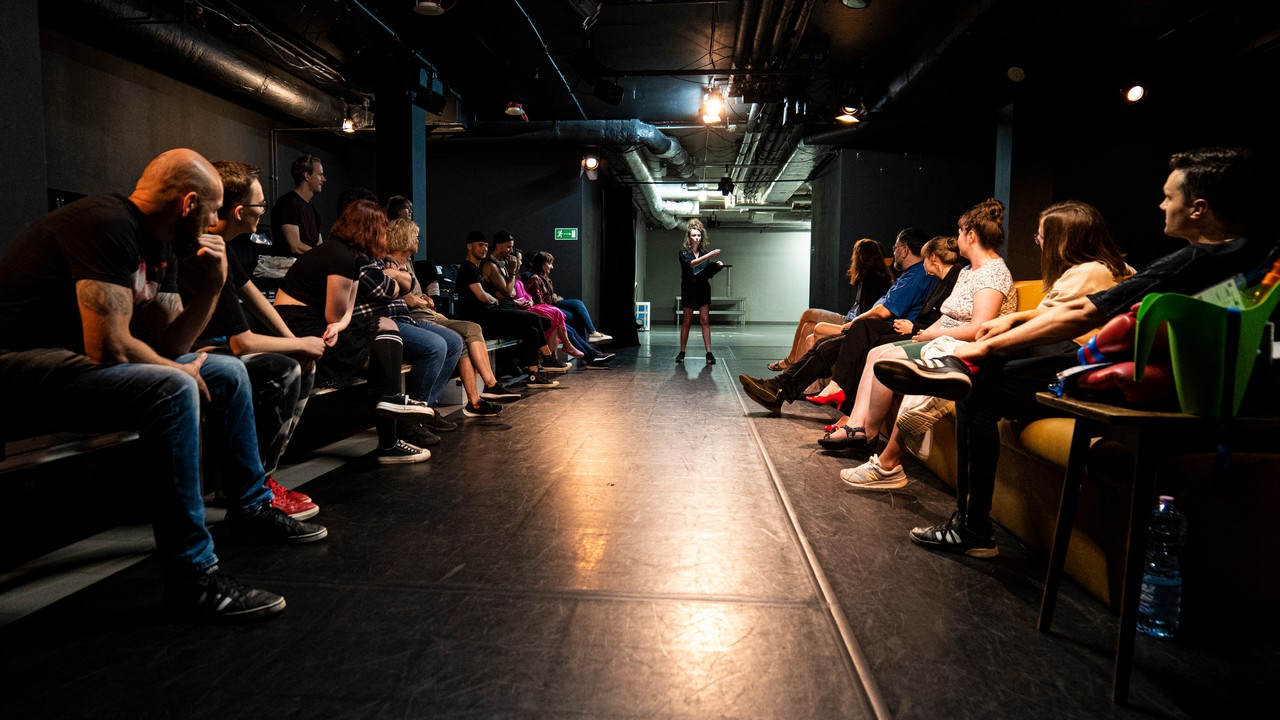
2) Warm-up
Participants were invited to an introductory game of getting to know as many people as possible and expressing their positions on the theses, read by the Game Master. Exploring these statements allowed participants to focus and better understand their future roles. The warm-up also created the right atmosphere for effective cooperation and interaction during the main activity
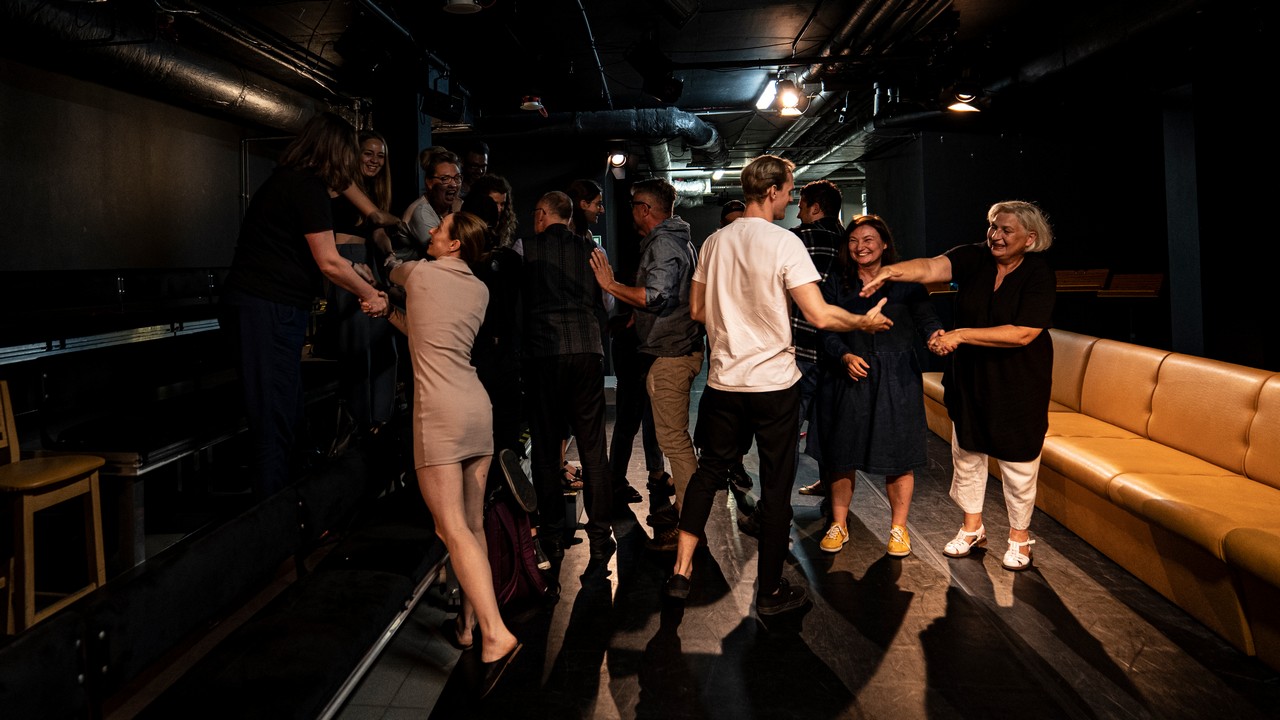
3) Allocation of roles
After the warm-up, participants drew their roles and received a character attribute – a prop unique to their personality. The distribution of the attribute, in the premise of the Forum Theater method, is to help transform the players. The participants were divided into 3 groups – residents, artists and officials, each with different interests in relation to the constructed space. The next activity was for the groups to meet with actor-guides at designated locations. This was a kind of ritual that helped the participants get into the rhythm of the game and create an initial bond with the subject and place of the action
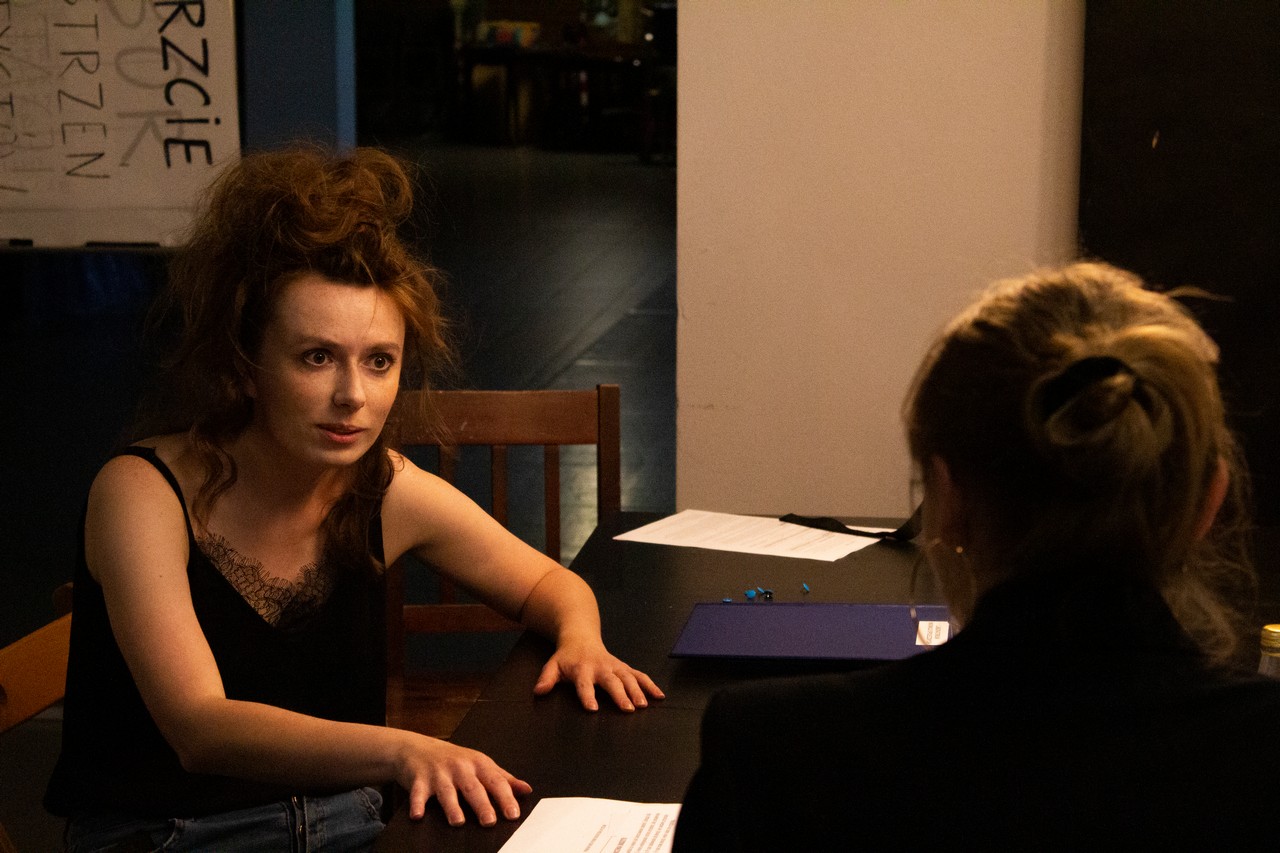
4) Act I – Exposition
This part was directed and included the work of actors introducing the players to the game world to ensure immersion. In this act, the first meetings between the groups were planned and key events in the scenario were introduced that changed the layout and relationships between the groups and their interests in relation to the created space.

5) Act II – Confrontation
In the second act of the game, all conflicts, crises, obstacles and complications between groups of players and within groups began to thicken. The participants, in order to agree with each other on plans for the development of the created space and conflicting interests, had to start weighing positive and negative emotions, successes and failures, so that they would have the satisfaction of progress and not be overwhelmed by constant setbacks and conflicts.
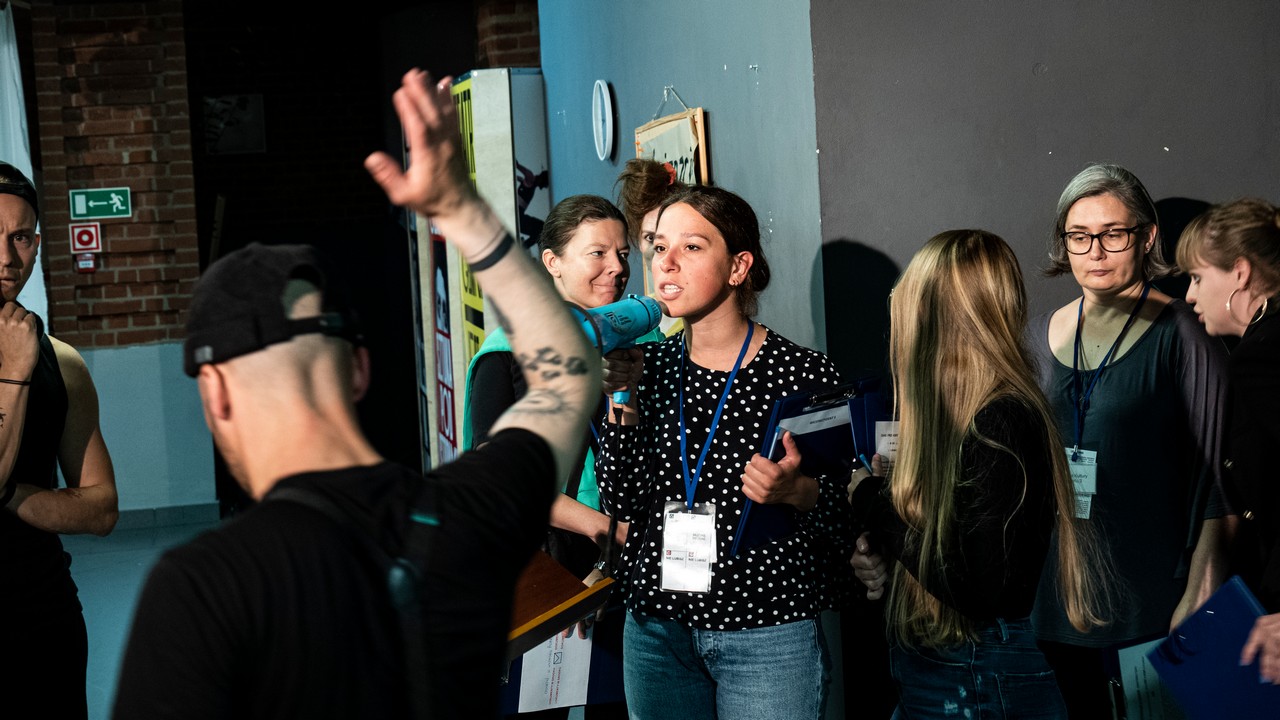
6) Act III – Enlightenment
In our Drama Labs, this was the part where the participants had to cooperate with each other and seek non-violent compromise in connection with the upcoming fictional political elections that would decide the future of their neighborhood. It was also a time for creating a political agenda, for a presidential debate, and for the climax of the whole game – the election and its results, which could come as a surprise to the participants.
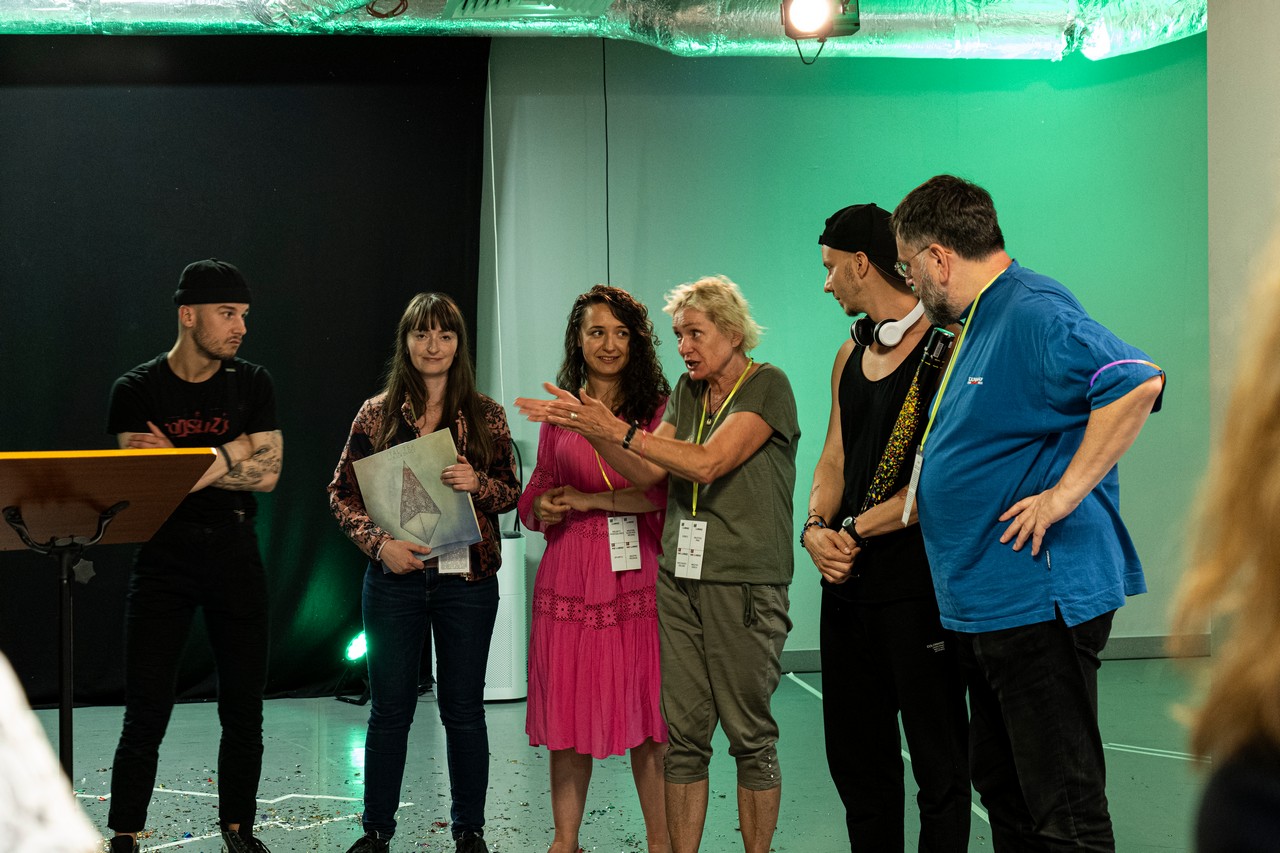
7) Conclusion
After exciting discussions and the culmination of the game, the participants were invited to symbolically shake off their roles and move from the fictional reality to the real world. The Game Master then encouraged participants to discuss and share their impressions, reflections and conclusions drawn from their experiences during the game. On the basis of these discussions, an “urban compromise” was jointly created, which dealt not so much with the individual needs of the participants but more with the principles of dialogue and non-violent communication, inclusion of residents in decision-making process and broader participation.
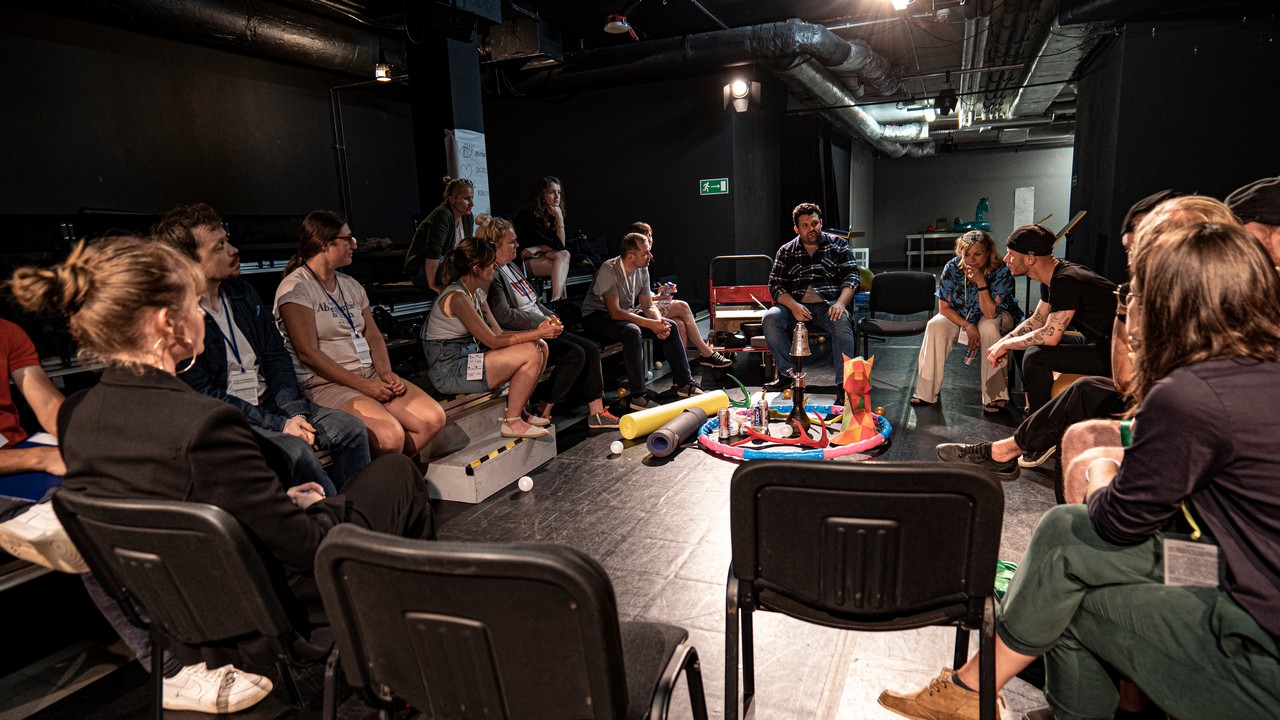
7) Casual conversations over dinner
To appreciate the time and commitment, a dinner was organized for the participants. However, this was not only a time to enjoy the food, but also an opportunity to continue conversations and share their experiences from the game. According to one of the participants, the shared meal allowed them to fully step out of character and forget about the fictional conflicts that took place during the game. The informality of this part of the event fostered community building with previous antagonists and established relationships outside the framework of the game.







